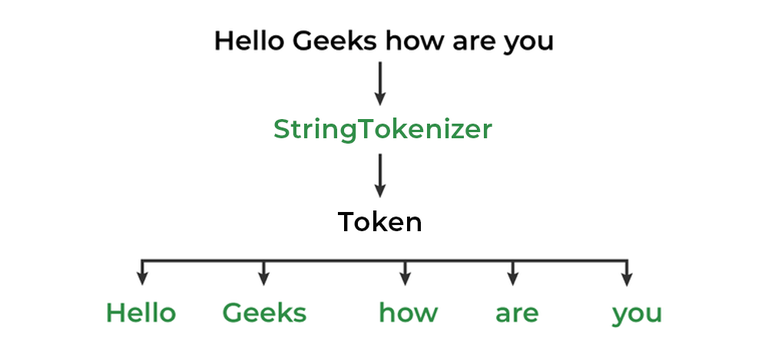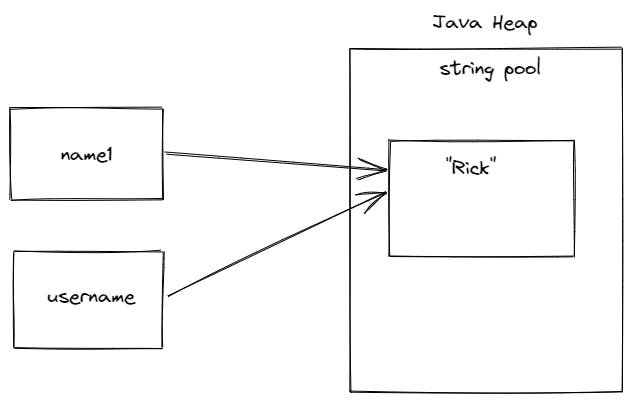Why Are Strings Immutable in Java? Insights right into Memory Effectiveness
Why Are Strings Immutable in Java? Insights right into Memory Effectiveness
Blog Article
The Advancement of Unalterable String Handling: An Important Facet of Software Program Development
In the intricate realm of software application advancement, the handling of immutable strings stands as a cornerstone that has actually undergone considerable advancement gradually. From its simple beginnings to the facility tests encountered in very early applications, the journey of immutable string control has actually been a critical aspect of software program design. As we navigate with the historic landscape of this fundamental concept, tracing the advancements, security effects, and emerging trends, we discover ourselves at a point where the intrinsic value of recognizing this advancement ends up being increasingly apparent.
Beginnings of Unalterable Strings
The concept of immutable strings traces back to the very early days of programs languages when developers sought to enhance the dependability and security of information taking care of systems. Immutable strings refer to strings that can not be changed after they are developed. This essential idea was presented to address problems relating to information stability and stop unintended modifications to essential info saved as strings.

Moreover, unalterable strings add to improving the overall safety and security of software application systems (Why are strings immutable in Java?). By preventing unapproved events from meddling with delicate string data, immutable strings help minimize the risk of data breaches and unapproved access to private information. This fundamental idea proceeds to play an essential role in contemporary programming languages and remains a keystone of safe and robust software program development techniques
Very Early Challenges and Solutions
One of the key obstacles in dealing with unalterable strings was handling memory effectively. Furthermore, making sure that strings remained unchanged shown to be intricate, especially when several components of the codebase required to accessibility and change data.
To deal with these difficulties, designers started implementing data encryption strategies to safeguard sensitive details saved in immutable strings. Encryption helped protect data from unapproved access and manipulation. Furthermore, the introduction of hashing algorithms provided a method to confirm the honesty of immutable strings by creating one-of-a-kind checksums based upon their contents. These checksums permitted fast comparisons to identify if any modifications had happened. By incorporating file encryption and hashing techniques right into the handling of immutable strings, designers substantially enhanced the protection and dependability of information within software application systems.

Developments in String Immutability
In software advancement, a significant development in the handling of unalterable strings has actually arised through improvements in data encryption and hashing strategies. By utilizing secure hash algorithms like SHA-256 or cryptographic techniques such as AES encryption, programmers can ensure that delicate info stored in unalterable strings remains secure and tamper-proof. These developments have bolstered the stability and confidentiality of information within applications, specifically in industries where data protection is extremely important, such as healthcare, financing, and cybersecurity.
Moreover, improvements in string immutability have actually led the way for improved performance optimization. Unalterable strings permit more efficient memory management and caching techniques, decreasing the expenses connected with regular string manipulations (Why are strings immutable in Java?). This optimization not just boosts the general responsiveness of software application applications but likewise contributes to far better scalability and source utilization
Security Ramifications and Finest Practices
With the structure laid by innovations in string immutability, understanding the security effects and implementing best practices ends up being critical in safeguarding delicate information within software applications. Unalterable strings play a anchor critical duty in improving safety and security by avoiding unauthorized modifications to data, making certain data honesty throughout the application's lifecycle. By utilizing immutable strings, developers can minimize typical vulnerabilities such as shot strikes, barrier overflows, and information meddling, which are often exploited by destructive stars to jeopardize systems.
This includes securing data at rest and in transportation, applying proper gain access to controls, utilizing protected coding techniques, and consistently updating software program elements to patch well-known vulnerabilities. By integrating these protection actions and finest practices right into software program advancement procedures, companies can much better safeguard their data possessions and minimize the danger of safety and security breaches and information leaks.
Future Patterns in String Handling
Amidst the ever-evolving landscape of software program development, the Visit Your URL trajectory of string handling is poised to witness considerable innovations and innovations. Designers are checking out brand-new algorithms and information frameworks to boost the speed and performance of string procedures.
Additionally, an additional fad coming up is the assimilation of man-made intelligence (AI) and machine understanding (ML) in string handling jobs. AI-powered devices are being created to automate and simplify numerous string manipulation processes, causing boosted performance and precision in software development process.
In addition, there is a growing emphasis on boosting the security aspects of string dealing with via progressed encryption techniques and safe coding methods. As cyber dangers remain to develop, ensuring the integrity and privacy of data within strings is becoming a leading concern for designers. By taking on durable safety actions, such as encryption at remainder and in transit, programmers can alleviate the risks related to string adjustment susceptabilities.
Verdict
In verdict, the evolution of immutable string handling has been a vital aspect of software program advancement, beginning with its beginnings to the developments made in recent years. Early challenges have actually been dealt with through cutting-edge remedies, leading to improved protection techniques in dealing with strings. It is essential for designers to remain upgraded on the most up to date patterns in string immutability to make sure the effectiveness and safety of their software application applications.
Immutable strings refer to strings that can not be changed after they are created. Why are strings immutable in Java?. By preventing unauthorized events from tampering with delicate string data, unalterable strings assist alleviate the threat of data violations and unauthorized accessibility to confidential details. By including encryption and hashing approaches right into the handling of unalterable strings, developers substantially improved the safety and integrity of information within software program systems
Immutable strings enable for more efficient memory management and caching strategies, minimizing the overhead linked with regular string manipulations. Immutable strings play an essential here function in enhancing safety and security by avoiding unauthorized adjustments to information, making certain data stability throughout the application's lifecycle.
Report this page